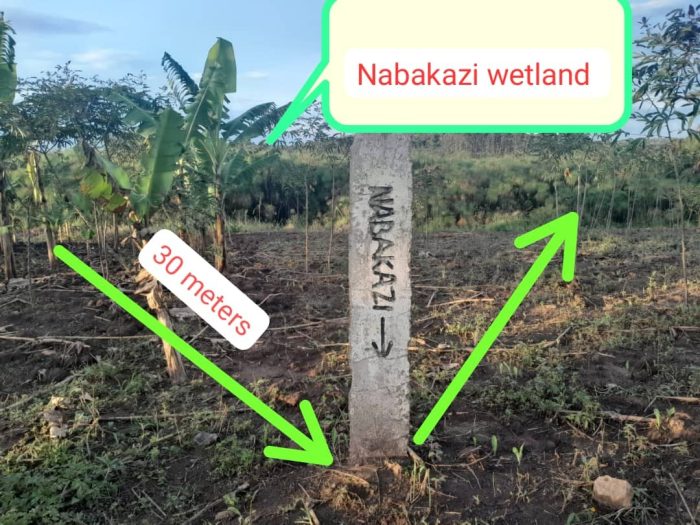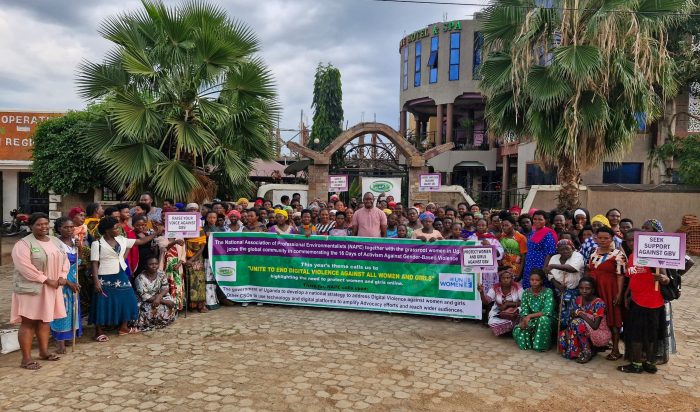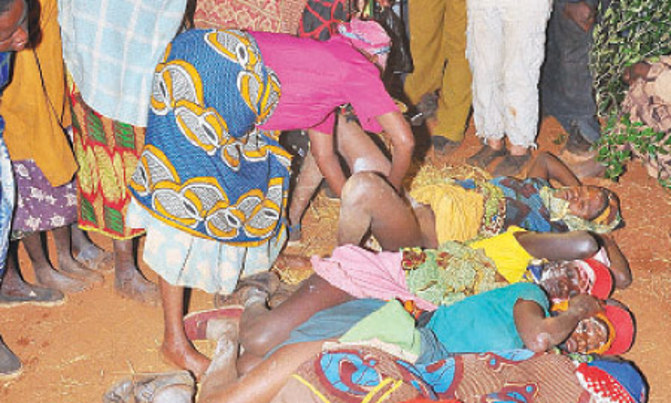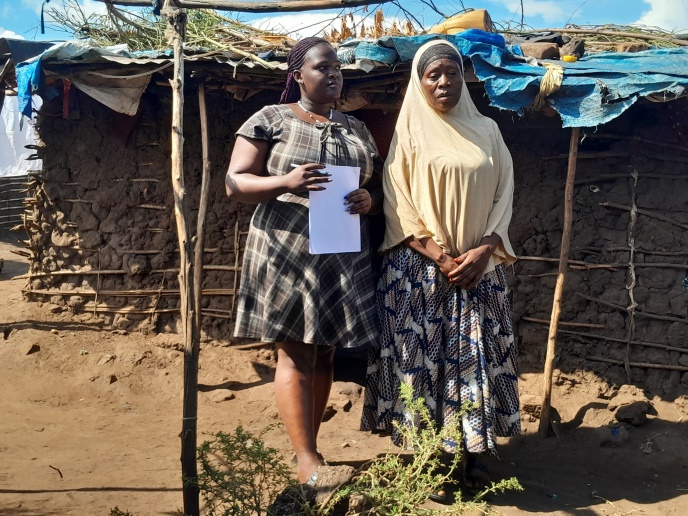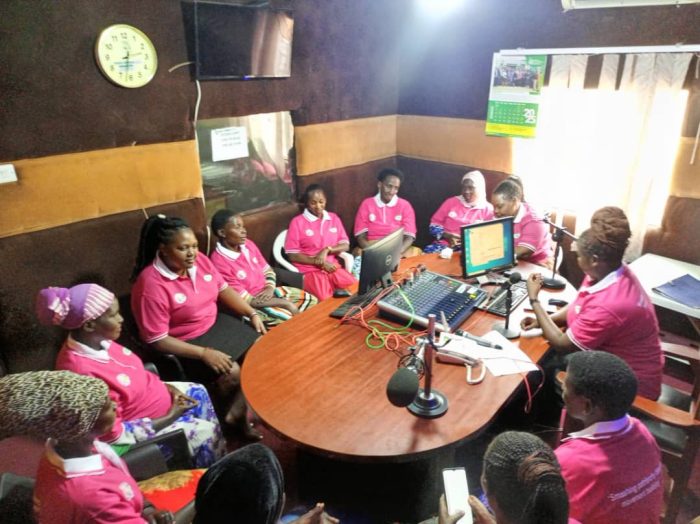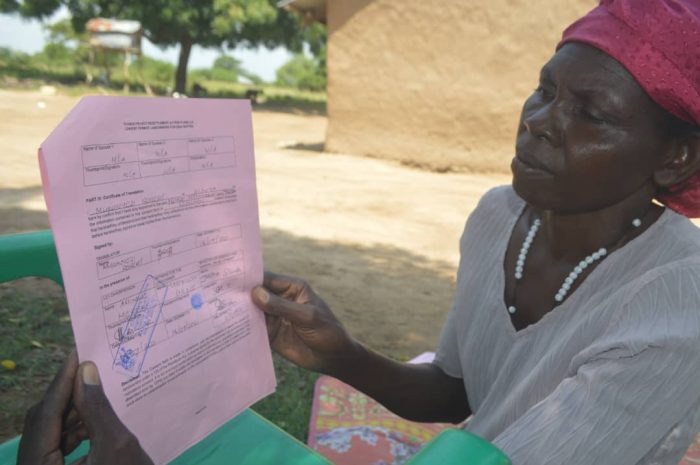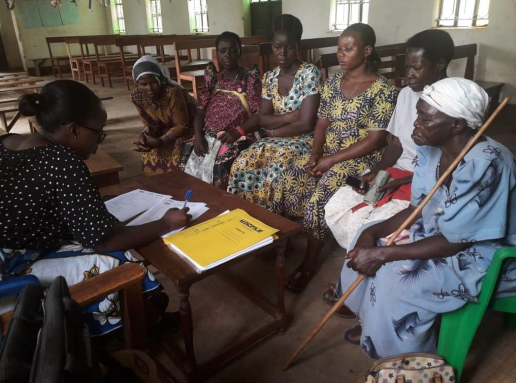
Under, the Participation and Opportunities for Women’s Economic Rights project in Uganda NAPE has set up legal aid clinics. Over 35 females and 2 males have benefited from legal aid clinics piloted in Hoima district.
In March 2020, legal aid clinics were held in Kyakaboga, Kigaaga and Kijayo communities in Hoima where women with land disputes met a lawyer. In Kyakaboga, the land disputes that came up were women versus government over lack of land title and poor resettlement. In Kigaaga, the disputes were women versus Uganda National Roads Authority over delayed compensation and women versus family, where men were denying their wives access and use of the land. Some of the cases called for the mediation between the husbands and their wives while others were referred to justice centers Uganda for women to be able to get justice. In Kijayo, the cases were related to human rights violations faced by women in Kijayo camp. The women also wanted NAPE to open up a parallel cluster action women-led land case in court. In addition, the legal aid clinics helped convey information on women’s rights to land, the concept of protecting land rights and its critical role in securing women’s livelihoods to the women in the
stated communities. The lawyer also disseminated leaflets with information on women land rights, where women can access justice for land matters.
In addition, the legal aid provider identified and made referrals for cases that need court, also the lawyer identified and provided a robust referral process for interested clients who the project cannot support due to capacity issues (i.e. hot lines for women to call). The vision of these legal aid clinics is to facilitate legal redress for women who were either unaware of their legal rights, or unable to access legal advice or indeed both, particularly related to issues of land violations. During the short timeframe, three community mediation processes have been successfully completed, and as a result, one woman successfully returned to her
land/homestead, and she has been able to reclaim her life.
Establishment of the legal aid clinic has also resulted in building a series of partnerships with legal aid service providers like the Hoima Justice Centres, women’s probono initiatives. In the future, NAPE and NAWAD hope to cultivate these partnerships support more women to report cases of land rights, and seek legal support beyond the scope of the project to share learning and to develop plans for sustainable approaches beyond the project lifetime.
Learning related to Legal aid Clinic delivery:
Based on the experience in Hoima, it is clear that women in these communities need further information about their land rights and need guidance on how to access justice if their land rights are violated. While many cases could merit litigation, the NAPE does not have the funds to support them directly. Therefore, we will need to direct funding and support to register their cases, and then to facilitate the plaintiffs to travel to local justice centres. It also became apparent that in order to get to legal recourse, many women would need to engage their male partners or other male relatives in the process, as a majority of them are not legally married nor have land titles in their names, therefore would find it difficult to establish ownership over their land. As a result, when the legal aid clinics are delivered in the future, we will plan to sensitize men and encourage them to attend the legal aid clinics alongside their female relatives to settle disputes.

